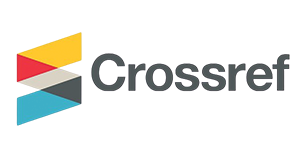Analysis of Changes in Community Behavior in Waste Management Through Zero Waste Community: a Case Study of Medan Perjuangan City
DOI:
https://doi.org/10.65119/jspds.v2i1.16Keywords:
Zero Waste, Waste Management, Medan Perjuangan City, SustainableAbstract
ABSTRACT
Indonesia's waste problem is increasingly pressing, with 69.9 million tons of waste generated by 2023, more than a third of which remains unmanaged. Medan, one of the largest waste contributors, faces two challenges: limited landfill sites and a lack of awareness of household waste sorting. This study investigates how people change their waste management practices while living in a Zero Waste community in Medan Perjuangan District. A literature review highlights that environmental knowledge, attitudes, and awareness are crucial for shaping pro-environmental behavior. The review also highlights that the Zero Waste Indonesia (ZWID) community fosters social transformation. The study used mixed methods; a total of 20 respondents were selected from the Medan Zero Waste community. Data were collected through observation, questionnaires, interviews, and document analysis. According to the study, Zero Waste principles remain ineffective, although awareness and environmentally friendly practices such as waste sorting and product reuse have increased. An effectiveness score below 50 was given to 95% of respondents, indicating that they have not yet implemented the ideal behavioral changes. The main obstacles are the habit of using single-use plastics, the lack of recycling infrastructure, and the lack of economic incentives. Zero Waste communities are crucial for driving behavioral change, but more people need to contribute through facilities, stricter regulations, and community incentive programs. To accelerate the transition to more participatory and sustainable household waste management, governments, communities, and civil society must work together.
References
Adenia, Niniek, Lea Fathra Azha Nabiela, and Mia Izzatul Afkarina. "ZERO WASTE COFFEE: REALIZE INDONESIA'S ECONOMIC GROWTH AND ENVIRONMENTAL PRESERVATION IN 2030." Journal of Finance, Business, and Economics 1.1 (2023): 1-20.
Arikunto, S. (2021). Research Procedures: A Practical Approach . Jakarta: Rineka Cipta.
Azzahra, A., & Pujihartati, SH (2024). Journal of Social, Policy, and Development Studies Analysis of the Adaptation Process of Traders After the Revitalization of Traditional Markets (Case
Study at Pasar Legi, Surakarta City). JSPDS , 1 (2), 39–45. https://doi.org/10.26905 Butarbutar, BFG (2023). Socioeconomic Influence on Household Waste Management Behavior in
Jambi City. Scientific Journal of Batanghari Jambi University , 23(4), 2692–2699. Damanhuri, Enri, and Tri Padmi. "Waste Management." Lecture Notes TL 3104 (2010): 5-10. Hidayat, R., Maulana, R., & Setiawan, D. (2020). The Use of T-Scores in Environmental Education
Program Evaluation. Indonesian Journal of Science Education , 8(2), 187–195.
Indah Lubis, Rosalia. "Participation of the Indonesian Zero Waste Community in Supporting a Zero
Waste Lifestyle." SOURCE: Journal of Communication Studies 7.2 (2021): 139-147.
Indra Purwanto Prawira Saputra. (2024). Journal of Social, Policy, and Development Studies Financial Regulation and National Economic Resilience Department of Public Administration.
JSPDS , 1 , 18–27. https://doi.org/10.26905
Karo, Yessi Theresia. Household Waste Management in Sidorame Timur Village, Medan Perjuangan
District, Medan City. Dis. University of North Sumatra, 2009.
Ministry of Environment and Forestry. (2023). SIPSN Annual Report 2022. Jakarta: KLHK. Ministry of Environment and Forestry. (2024). Report on the Development of Regency/City Waste Management as of September 2024. Jakarta: KLHK.
Mahyudin, Rizqi Putriri. "Sustainable waste management strategies." EnviroScienteae 10.1 (2014):
-40.
Miles, MB, Huberman, AM, & Saldaña, J. (2014). Qualitative Data Analysis: A Methods Sourcebook
(3rd ed.). California: SAGE Publications.
Nugroho, Moh Alfan. "The Concept of Environmental Education: Efforts to Instill Environmental
Awareness." Ibtidaiyyah: Journal of Elementary School Teacher Education 1.2 (2022): 93-
Ps, Author Team. Waste handling and processing. Penebar Swadaya Group, 2008.
Rahayu, Dewi, et al. "Zero Waste Movement as a Form of Environmental Concern in South
Tangerang City." International Journal of Demos 3.2 (2021): 125-138.
Riduwan. (2020). Methods & Techniques for Compiling Research Proposals . Bandung: Alfabeta. Saputro, Yusa Eko, Kismartini Kismartini, and Syafrudin Syafrudin. “Community-based waste
management through waste banks.” Indonesian Conservation Journal 4.1 (2016).
Sudiyanto, IW, & Magfirah, HS (2025). Strategy for Strengthening Waste Banks in Zero Waste Implementation in Indonesia: A Literature-Based Approach. Multidisciplinary Journal of
Western Sciences , 3(2), 112–121.
Suharyat, Yayat. "The relationship between attitudes, interests, and human behavior." Regional
Journal 1.3 (2009): 1-19.
Sutisna, Muhammad Aziz Rizal. "Integrated urban waste management strategy towards zero waste."
Waste Management and Environmental Monitoring 1.1 (2024).
Downloads
Published
Issue
Section
License
Copyright (c) 2025 Journal of Social, Policy and Development Studies

This work is licensed under a Creative Commons Attribution-ShareAlike 4.0 International License.









